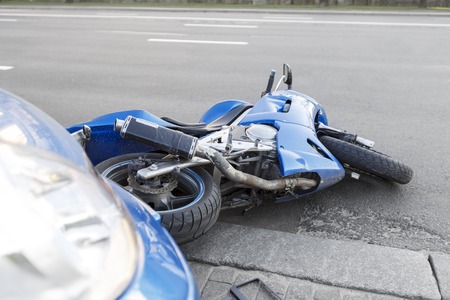Motorcycle Accident Attorneys
 Motorcycles are a passion for many, who enjoy participating in events such as Bike Week in Daytona Beach, the annual motorcycle rally in Sturgis, South Dakota or simply a weekend out cruising on the bike. However, motorcycling can be a dangerous pastime. Florida has the highest number of motorcycle fatalities in the nation according to the federal National Highway Traffic Safety Administration (NHTSA) statistics. Although Florida regularly has the most motorcycle fatalities in the nation on an annual basis, motorcycle fatalities are also a major problem in Tennessee, Arkansas and Mississippi, which had 118, 71, and 36 motorcycle fatalities in 2015, respectively. As can be seen from these statistics, motorcycle accidents can be among the most dangerous. Motorcyclists are therefore required to wear protective eyewear and/or helmets in most states in order to keep them safe. However, motorists in cars also have responsibilities to drive responsibly when motorcyclists are present. Contrary to popular belief, in many cases, motorcycle accidents, and in particular motorcycle accidents which result in fatalities, are caused by motorists in motor vehicles who are ignoring their own legal responsibilities in the operation of their vehicles when a motorcycle is present. Indeed, according to Tennessee’s manual for motorcyclists, research has shown that 2/3 of car-motorcycle collisions are caused by the car’s driver rather than the motorcyclist.
Motorcycles are a passion for many, who enjoy participating in events such as Bike Week in Daytona Beach, the annual motorcycle rally in Sturgis, South Dakota or simply a weekend out cruising on the bike. However, motorcycling can be a dangerous pastime. Florida has the highest number of motorcycle fatalities in the nation according to the federal National Highway Traffic Safety Administration (NHTSA) statistics. Although Florida regularly has the most motorcycle fatalities in the nation on an annual basis, motorcycle fatalities are also a major problem in Tennessee, Arkansas and Mississippi, which had 118, 71, and 36 motorcycle fatalities in 2015, respectively. As can be seen from these statistics, motorcycle accidents can be among the most dangerous. Motorcyclists are therefore required to wear protective eyewear and/or helmets in most states in order to keep them safe. However, motorists in cars also have responsibilities to drive responsibly when motorcyclists are present. Contrary to popular belief, in many cases, motorcycle accidents, and in particular motorcycle accidents which result in fatalities, are caused by motorists in motor vehicles who are ignoring their own legal responsibilities in the operation of their vehicles when a motorcycle is present. Indeed, according to Tennessee’s manual for motorcyclists, research has shown that 2/3 of car-motorcycle collisions are caused by the car’s driver rather than the motorcyclist.
Laws Regulating the Use of Motorcycles in Florida, Tennessee, Mississippi and Arkansas
Under Florida law, motorcyclists are not required to wear a helmet if they are 21 years of age or over if the person is covered by an insurance policy providing for at least $10,000 in medical benefits for injuries incurred as a result of a crash. Nonetheless, if a motorcyclist does not carry the required amount of insurance, he or she is required to wear a helmet or other form of protective headgear. In addition, all motorcyclists in Florida are required to wear eye protection such as safety goggles while operating a motorcycle. Arkansas is similar to Florida in that motorcyclists are required to wear protective eyewear, but not required by law to wear a helmet if over the age of 21. In contrast to Florida and Arkansas, in Tennessee and Mississippi, all motorcyclists are required to wear a helmet.
Motorcyclists are also required to obey the same traffic laws as other drivers. These include observing all posted speed limits, stopping at stop signs and red lights, and obeying all other local and state traffic safety laws and ordinances. Motorcyclists also are not permitted to travel more than two bikes across in a single lane, cannot pass an automobile in the same lane that the car is traveling in and cannot drive between lanes of traffic.
Laws Regulating Motor Vehicle Drivers When Motorcycles Are Present
Under the laws of the four states mentioned above, drivers of cars and other motor vehicles have special responsibilities when motorcycles are present on the road. For instance, the laws in Arkansas, Tennessee, Mississippi and Florida specifically provide that motor vehicles cannot be driven so as to deprive any motorcycle of the full use of a lane. Accordingly, if a car’s driver is attempting to travel in the same lane as a motorcycle, then the driver would be violating the law. In addition, motorists in cars are required to treat motorcycles as they would any other vehicle, meaning that a motorcyclist has the same rights and responsibilities not to be followed too closely or cut off.
Copyright: nastenkapeka / 123RF Stock Photo




